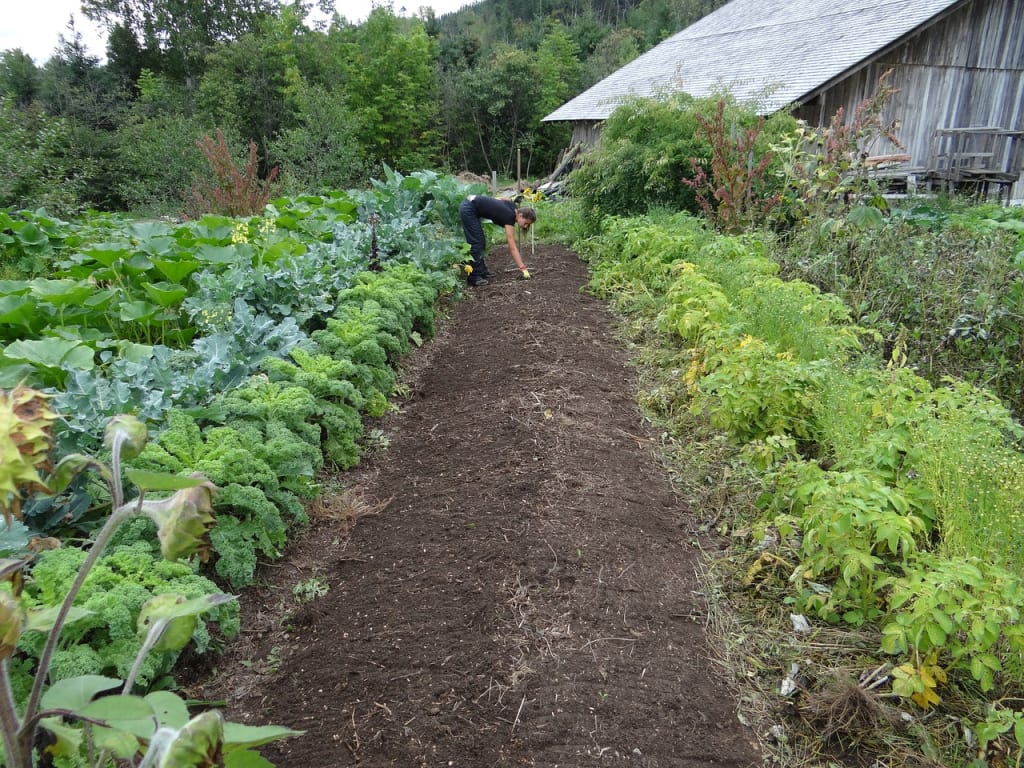Content warning
This story may contain sensitive material or discuss topics that some readers may find distressing. Reader discretion is advised. The views and opinions expressed in this story are those of the author and do not necessarily reflect the official policy or position of Vocal.

Feed the dirt, and let the dirt feed the plants. It's one of two aphorisms I live by with regard to planting counsel.
Yet, in the event that you're like many, I can read your mind; Soil needn't bother with the supplements; the plants do. So how does taking care of the dirt assist our plants? There is a different universe underneath the dirt surface that most home groundskeepers don't completely appreciate. However, soil researchers let us know that in ideal circumstances, overflowing with billions of valuable microorganisms gives plants all that they need to develop and flourish normally.
Obviously, that accepts we haven't parched the dirt with inordinate salts that come from the abuse of manufactured composts. All things being equal, we ought to work on the dirt with a consistent stockpile of natural matter-fertilizer, destroyed leaves, or matured excrement to advance plant development by keeping a solid soil food web.
Think about it with respect to our own bodies. In the event that we're attempting to be as sound as possible, do we top off on a lot of low-quality food each time we're eager? Or on the other hand, do we settle on something that fulfills our yearning hankering yet additionally isn't stacking our bodies with a lot of fat structure void of calories? It's the unhealthy food versus entire food varieties contention, yet it tends to be applied to plants, as well.
Plants can get their essential supplements in one of two ways. The first is through artificially engineered manures. This is commonly salt-based intensifies which incorporates supplements like nitrogen, potassium, or phosphorus. Those synthetic compounds become accessible to the plant as the particles break up, or when they pass by the roots, likewise with water-solvent composts.
Undoubtedly, this is a demonstrated method for getting supplements into the plant rapidly. What's more, it works — great. Be that as it may, so throws out food to facilitate your cravings for food — for a brief time. While your plants will answer the manure, and your taste buds will cherish the unhealthy food, is that truly the way in which you need to deal with your well-being… or the strength of your plant's long haul?
These natural supplements should initially be separated and processed by soil life forms, from microorganisms and organisms to other soil-abiding animals including little bugs up to the strong night crawler. Altogether, they discharge supplements in a natural structure that plants can use, while likewise further developing soil structure.
In contrast to water-dissolvable manufactured synthetic compounds, naturally determined supplements tie to soil particles and are undeniably less inclined to siphon. The net outcome is a store of supplements that stay in the dirt until used by plants… with little gamble to plants of consuming or lack of hydration, even in times of outrageous dry season or over-application.
As we keep on taking care of the dirt with natural matter (through manure, leaf litter, worm castings, food scraps, regular compost, and so on) existing soil organic entities use these sources of info and keep on providing food and supplements for a dirt climate that upholds other living organic entities and vegetation. The outcome is a flourishing, adjusted environment. Simply the manner in which nature planned.
Whether you purchase or make it, fertilizer is the very best method for taking care of the dirt and letting the dirt feed the plants. I accept it's the absolute most significant fixing anybody can add to their nursery.
Past adding life and fruitfulness to the dirt, it accomplishes such a great deal more.
Fertilizer further develops soil seepage, yet permits soil to hold adequate dampness. It makes the sort of soil structure that is basic for supplements and water to be ingested, and roots to spread. Manure additionally decreases soil disintegration and overflow. It shields plants from specific illnesses, moderates pH levels, takes care of worms and other soil-staying animals, upholds useful microorganisms, is known to be a development energizer and even cushions poisons in the dirt.
Furthermore, the most amazing aspect is - You can undoubtedly make your own fertilizer (nature's superfood) free of charge. Every one of the fixings you want come from numerous things you would some way or another expendable from inside and outside your home.
Non-fertilizer, natural supplements
While looking for other natural choices to take care of your dirt, choices are frequently recorded principally by what they are, like blood or bone dinner or rock phosphate. Here is an incomplete posting of the most regularly accessible natural supplements arranged by their job for giving nitrogen, phosphorus, or potassium.
Nitrogen: Dried blood, blood feast, cottonseed dinner, fish emulsion, kelp extricate
About the Creator
Anitha
I’m a writer, "The Importance of Mindfulness in a Busy World" Currently trying to write a book. Writing about anything and everything






Comments (1)
Usefull good 👍👍